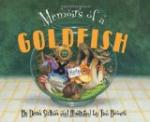Mind you, I do not mean to assert that I got nothing out of it at all. Undoubtedly I absorbed a smattering of a variety of subjects that might on a pinch pass for education. I observed how men with greater social advantages than myself brushed their hair, wore their clothes and took off their hats to their women friends. Frankly that was about everything I took away with me. I was a victim of that liberality of opportunity which may be a heavenly gift to a post-graduate in a university, but which is intellectual damnation to an undergraduate collegian.
The chief fault that I have to find with my own education, however, is that at no time was I encouraged to think for myself. No older man ever invited me to his study, there quietly and frankly to discuss the problems of human existence. I was left entirely vague as to what it was all about, and the relative values of things were never indicated. The same emphasis was placed on everything—whether it happened to be the Darwinian Theory, the Fall of Jerusalem or the character of Ophelia.
I had no philosophy, no theory of morals, and no one ever even attempted to explain to me what religion or the religious instinct was supposed to be. I was like a child trying to build a house and gathering materials of any substance, shape or color without regard to the character of the intended edifice. I was like a man trying to get somewhere and taking whatever paths suited his fancy—first one and then another, irrespective of where they led. The Why and the Wherefore were unknown questions to me, and I left the university without any idea as to how I came to be in the world or what my duties toward my fellowmen might be.
In a word the two chief factors in education passed me by entirely—(a) my mind received no discipline; (b) and the fundamental propositions of natural philosophy were neither brought to my attention nor explained to me. These deficiencies have never been made up. Indeed, as to the first, my mind, instead of being developed by my going to college, was seriously injured. My memory has never been good since and my methods of reading and thinking are hurried and slipshod, but this is a small thing compared with the lack of any philosophy of life. I acquired none as a youth and I have never had any since. For fifty years I have existed without any guiding purpose except blindly to get ahead—without any religion, either natural or dogmatic. I am one of a type—a pretty good, perfectly aimless man, without any principles at all.
They tell me that things have changed at the universities since my day and that the elective system is no longer in favor. Judging by my own case, the sooner it is abolished entirely, the better for the undergraduate. I should, however, suggest one important qualification—namely, that a boy be given the choice in his Freshman year of three or four general subjects, such as philosophy, art, history, music, science, languages or literature, and that he should be compelled to follow the subjects he elects throughout his course.




